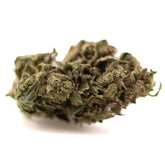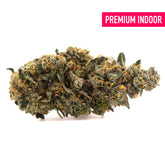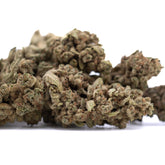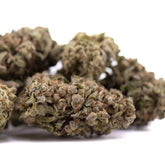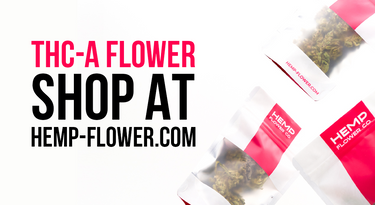Is Hemp Flower Legal in All 50 States? 2025 Complete Guide

Hemp flower legality remains one of the most searched questions in 2025, and for good reason. While the 2018 Farm Bill federally legalized hemp, including THCa hemp flower legal products, state laws vary significantly across the United States. The landscape has become increasingly complex as lawmakers grapple with distinguishing between legal hemp and regulated cannabis, particularly when it comes to products containing tetrahydrocannabinolic acid (THCa).
Understanding hemp flower legality is crucial for consumers, retailers, and businesses operating in this space. With a multibillion-dollar hemp industry at stake and pending federal legislation that could reshape the entire market, staying informed about current laws and potential changes is more important than ever.
This comprehensive guide examines the current federal legal framework, provides a detailed state-by-state analysis, explores THCa-specific regulations, and addresses the most frequently asked questions about hemp flower legality in 2025.
Federal Legal Framework for Hemp Flower
The 2018 Farm Bill Foundation
The Agriculture Improvement Act of 2018, commonly known as the 2018 Farm Bill, established the current federal legal framework for hemp. This landmark legislation removed hemp from the Controlled Substances Act and created a clear distinction between legal hemp and regulated marijuana.
Under federal law, hemp is defined as the Cannabis sativa L. plant and any part of that plant, including derivatives, extracts, cannabinoids, isomers, acids, salts, and salts of isomers, containing no more than 0.3% delta-9 THC on a dry weight basis. This definition encompasses:
- Raw hemp flower and biomass
- Hemp-derived cannabinoid products
- THCa flower 50 states compliant products
- CBD and other non-intoxicating cannabinoids
- Hemp seeds and hemp oil
Current Federal Testing Requirements
Federal hemp regulations require pre-harvest testing to determine compliance with the 0.3% delta-9 THC threshold. The U.S. Department of Agriculture (USDA) mandates that this testing occur within 30 days of harvest using DEA-registered laboratories. Importantly, current federal law only requires this testing for pre-harvest crops, not finished hemp products.
The federal testing methodology uses a decarboxylation formula that converts THCa to THC for testing purposes. This means that while growing hemp, producers must account for "total THC" (THC + THCa × 0.877). However, this requirement only applies to cultivation and pre-harvest testing, not to finished consumer products.
Federal vs. State Jurisdiction
While the 2018 Farm Bill legalized hemp federally, it preserved states' rights to regulate hemp within their borders. States can:
- Prohibit hemp cultivation or processing entirely
- Establish stricter regulations than federal requirements
- Require additional licensing or testing
- Restrict certain types of hemp products
- Set age restrictions for hemp product sales
This state authority has created a patchwork of laws across the country, making it essential for consumers and businesses to understand both federal and local regulations.
State-by-State Hemp Flower Legality Analysis
States Where Hemp Flower is Fully Legal (39 States)
The majority of U.S. states allow hemp flower sales and possession, provided products comply with federal THC limits. These states generally follow the federal framework with minimal additional restrictions:
Alabama: Hemp flower is legal under state adoption of the 2018 Farm Bill. Legal THCa hemp products are available through licensed retailers.
Alaska: Fully legal for adults over 21, aligning with federal hemp laws and the state's broader cannabis regulations.
Arizona: Hemp flower is legal as long as products adhere to federal delta-9 THC limits. The state has embraced hemp commerce with minimal restrictions.
Arkansas: Allows hemp-derived products following federal guidelines, with a robust regulatory framework for cultivation and retail.
California: Despite having legal cannabis, California also permits hemp flower under federal guidelines, though products must comply with state labeling requirements.
Colorado: No state-level restrictions on hemp flower that meets federal THC thresholds. The state was an early adopter of hemp regulations.
Connecticut: Hemp flower is legal, though the state has implemented strict regulations on THC content in finished products.
Delaware: Recognizes hemp-derived products under the state's broader cannabis reform program.
Florida: Hemp flower is widely available and legal under state hemp laws, though recent legislative proposals could change this landscape.
Georgia: Legal as long as products contain less than 0.3% delta-9 THC, though recent legislation has added complexity to THCa products.
Hawaii: Fully legal under state law, aligning with federal hemp regulations.
Illinois: Hemp flower is considered legal hemp provided it meets federal delta-9 THC limits.
Indiana: Permitted under Indiana's strict hemp regulations with proper licensing requirements.
Iowa: Legal within federal THC limits, though the state has banned smokable hemp flower specifically.
Kansas: Allows hemp flower as long as total THC remains below 0.3%, though enforcement can vary.
Kentucky: Fully legal under the state's established hemp program, one of the nation's most comprehensive.
Louisiana: Hemp flower is legal with proper compliance documentation.
Maine: Widely accepted and available for retail sale with federal compliance.
Maryland: Permitted under Maryland's hemp laws with standard federal requirements.
Massachusetts: Fully legal and available for retail sale in licensed establishments.
Michigan: No restrictions as long as products adhere to federal THC limits.
Minnesota: Legal and regulated within the state's hemp market framework.
Missouri: Hemp flower is legal under state hemp provisions.
Montana: Allows hemp flower sales with proper licensing and testing.
Nevada: Legal under state hemp laws, though the state also has legal cannabis.
New Hampshire: Permits hemp flower under federal guidelines.
New Jersey: Legal under the state's cannabis reform legislation.
New Mexico: Allows hemp flower alongside legal cannabis products.
New York: Legal hemp flower is available through licensed retailers.
North Carolina: One of the leading hemp cultivation states, fully legal.
North Dakota: Legal under state hemp regulations.
Ohio: Permits hemp flower with standard federal compliance.
Oklahoma: Legal hemp flower is widely available.
Oregon: Allows hemp flower, though recent legislation has added testing requirements.
Pennsylvania: Legal under state hemp laws.
South Carolina: Permits hemp flower with federal compliance.
Tennessee: Currently legal under hemp provisions through 2025, though future changes are planned.
Texas: Hemp flower is legal under state law, despite ongoing legislative discussions.
Vermont: Fully legal under state cannabis and hemp laws.
Virginia: Permitted under hemp laws with strict testing requirements.
Washington: Allowed under hemp regulations despite legal cannabis.
West Virginia: Legal hemp flower is available with proper compliance.
Wisconsin: Permits hemp flower under federal guidelines.
Wyoming: Legal under state hemp laws.

States with Restricted Hemp Flower Laws (8 States)
Several states have implemented additional restrictions on hemp flower beyond federal requirements:
Iowa: While hemp is legal, the state specifically prohibits smokable hemp flower intended for inhalation, though other hemp products remain legal.
Louisiana: Requires additional state licensing and has specific restrictions on smokable hemp products.
North Dakota: Has age restrictions and requires specific labeling for hemp flower products.
Rhode Island: Treats certain hemp products, including some THCa flower, as controlled substances due to decarboxylation concerns.
South Dakota: Maintains stricter enforcement policies despite technically allowing federally compliant hemp.
Utah: Hemp flower is regulated similarly to THC products and only allowed under specific medical programs.
Mississippi: Classifies THCa hemp flower under its medical cannabis program, making it illegal for general retail sale.
Georgia: Recent legislation passed in April 2024 regulates all psychoactive hemp products, including THCa hemp legality questions.
States Where Hemp Flower Faces Significant Legal Challenges (3 States)
Three states maintain particularly strict policies regarding hemp flower:
Idaho: One of the strictest states in the nation, Idaho bans all THC-related cannabinoids, including THCa, even if derived from federally legal hemp. Possession can result in criminal penalties.
Nebraska: While not explicitly banning hemp, the state maintains conservative enforcement policies that create uncertainty for hemp flower products.
Kansas: Though technically allowing hemp under federal guidelines, the state has passed legislation banning "all THC isomers and derivatives," creating legal ambiguity.
THCa Hemp Flower: Special Legal Considerations
Understanding THCa vs. THC
Tetrahydrocannabinolic acid (THCa) is the non-psychoactive precursor to THC found in raw cannabis and hemp plants. Unlike THC, THCa does not produce intoxicating effects until it undergoes decarboxylation through heat application (smoking, vaping, or cooking). This chemical distinction has created significant legal implications for hemp flower products.
Most hemp flower contains relatively high levels of THCa but minimal delta-9 THC in its raw form. When consumers smoke or vape this flower, the heat converts THCa into psychoactive THC, potentially creating legal gray areas.
Federal THCa Regulations
Under current federal law, THCa flower federal law compliance depends on the delta-9 THC content, not THCa levels, in finished products. The 2018 Farm Bill's definition of hemp specifically references "delta-9 tetrahydrocannabinol" concentration, not total THC or THCa.
However, this distinction has created what many lawmakers view as a loophole. Products with high THCa content can technically comply with federal hemp law while still producing intoxicating effects when consumed.
State-Level THCa Enforcement
States have taken varying approaches to THCa regulation:
Total THC States: Some states, including Oregon and California, have implemented "total THC" testing requirements for finished hemp products. These laws require testing that accounts for the potential conversion of THCa to THC.
Pre-Harvest Only States: Many states follow federal guidelines and only require total THC testing for pre-harvest crops, not finished products.
THCa-Specific Bans: Several states have specifically banned THCa products or classified them as controlled substances.
Pending Federal Legislation
Significant changes to THCa legality may be coming at the federal level. Current congressional proposals include:
2025 Farm Bill Reauthorization: Both House and Senate versions propose redefining hemp to include "total THC" limits, which would encompass THCa.
Appropriations Bills: The House Agriculture Appropriations Subcommittee has approved spending bills that would redefine hemp to exclude products with "quantifiable amounts" of THC or THCa.
Timeline for Changes: While the 2025 Farm Bill has been delayed, potential changes could take effect as early as late 2025 or early 2026.

Compliance Requirements for Hemp Flower
Third-Party Laboratory Testing
All legitimate hemp flower products must undergo third-party laboratory testing to verify compliance with federal and state requirements. Proper testing should include:
Cannabinoid Profile Analysis: Testing for THC, THCa, CBD, and other cannabinoids to ensure accurate labeling and compliance.
Pesticide Testing: Screening for harmful pesticides and chemicals that could pose health risks.
Heavy Metals Testing: Analysis for lead, mercury, cadmium, and other toxic metals.
Microbial Testing: Detection of harmful bacteria, yeast, mold, and other microorganisms.
Residual Solvents: Testing for extraction solvents and other chemical residues.
Certificate of Analysis (COA) Requirements
Every hemp flower product should include a Certificate of Analysis that provides:
- Detailed cannabinoid profiles
- Testing dates and batch information
- Laboratory accreditation details
- Pass/fail results for all tested parameters
- QR codes or links to verify test results
Proper Labeling and Packaging
Hemp flower products must comply with specific labeling requirements:
Federal Requirements:
- Clear identification as hemp-derived
- THC content disclosure
- Net weight information
- Manufacturer contact information
State-Specific Requirements:
- Age restriction warnings
- Health and safety disclaimers
- Specific THC content formatting
- Child-resistant packaging (in some states)
Age Verification Systems
Most states require age verification for hemp flower purchases:
- Minimum age of 18 or 21 (varies by state)
- Valid government-issued ID verification
- Online age verification systems for e-commerce
- Staff training requirements for retail locations
Business Licensing Requirements
Hemp flower businesses typically need various licenses:
Cultivation Licenses: Required for growing hemp in most states Processing Licenses: Needed for manufacturing hemp products Retail Licenses: Required for selling hemp products to consumers Laboratory Licenses: Necessary for testing hemp products
Current Legal Challenges and Enforcement Issues
Federal vs. State Conflicts
The hemp industry faces ongoing challenges due to conflicts between federal and state laws. While hemp may be federally legal, state restrictions can create compliance difficulties for businesses operating across state lines.
Banking and Financial Services
Despite federal legality, many hemp businesses still face banking challenges. Financial institutions often remain cautious about providing services to hemp companies due to regulatory uncertainty and the similarity between hemp and marijuana.
Interstate Commerce Issues
Transporting hemp flower across state lines can create legal complications, particularly when passing through states with restrictive hemp laws. Businesses must carefully plan shipping routes and ensure compliance with all applicable state laws.
Law Enforcement Training
Many local law enforcement agencies lack proper training to distinguish between legal hemp flower and illegal marijuana. This has led to numerous seizures of legal hemp products and costly legal disputes.
Testing Standardization
The lack of standardized testing methodologies across states creates compliance challenges. Different states may require different testing parameters, making it difficult for businesses to operate nationally.
Future Outlook for Hemp Flower Legality
Pending Federal Legislation
Several pieces of federal legislation could significantly impact hemp flower legality:
Farm Bill Reauthorization: The delayed 2025 Farm Bill reauthorization could redefine hemp to include total THC limits, effectively banning most THCa flower products.
Appropriations Bills: Congressional spending bills have included language that would close the "THCa loophole" and ban intoxicating hemp products.
DEA Regulations: The Drug Enforcement Administration has signaled that it views THCa as equivalent to THC in certain contexts.
State-Level Trends
States are increasingly moving toward stricter hemp regulations:
Total THC Testing: More states are implementing total THC testing requirements for finished hemp products.
Synthetic Cannabinoid Bans: Many states are banning synthetic cannabinoids derived from hemp.
Age Restrictions: Additional states are implementing age restrictions for hemp product sales.
Retail Regulations: States are requiring specific licensing for hemp retailers and imposing operational restrictions.
Industry Response
The hemp industry is actively working to address regulatory challenges:
Advocacy Efforts: Industry organizations are lobbying for sensible hemp regulations that protect consumers while preserving the legal hemp market.
Self-Regulation: Many companies are implementing strict internal compliance standards that exceed legal requirements.
Education Initiatives: Industry groups are working to educate lawmakers, law enforcement, and consumers about legal hemp products.
Market Predictions
Industry experts predict several potential scenarios for hemp flower legality:
Federal Harmonization: Possible federal legislation that creates uniform hemp standards across all states.
State-by-State Approach: Continued variation in state laws requiring businesses to navigate a complex regulatory landscape.
Medical vs. Adult-Use Distinction: Potential federal framework that distinguishes between medical and adult-use hemp products.
Frequently Asked Questions (FAQ)
Is hemp flower legal to purchase online?
Yes, federally compliant hemp flower can be legally purchased online and shipped to most states. However, some states have specific restrictions on online hemp sales. Always verify that the retailer ships to your state and complies with local laws.
Can I travel with hemp flower between states?
Traveling with hemp flower between states is generally legal under federal law, provided the product complies with the 0.3% delta-9 THC limit. However, you may encounter issues if passing through states with restrictive hemp laws. Always carry proper documentation, including certificates of analysis.
How can I verify that hemp flower is legal?
Legal hemp flower should include:
- Third-party lab test results (Certificate of Analysis)
- THC content below 0.3% delta-9 THC
- Proper labeling with manufacturer information
- Compliance with state-specific requirements
What's the difference between hemp flower and marijuana flower?
The only legal difference is THC content. Hemp flower contains 0.3% or less delta-9 THC on a dry weight basis, while marijuana exceeds this threshold. Botanically, both come from the same Cannabis sativa L. plant.
Are THCa hemp flower products legal everywhere hemp is legal?
Not necessarily. While THCa hemp flower is federally legal, some states have implemented "total THC" testing requirements or specifically banned THCa products. Always check your state's specific hemp laws.
Can employers test for hemp flower use?
Yes, most standard drug tests cannot distinguish between THC from legal hemp flower and illegal marijuana. Hemp flower use may result in positive drug test results, which could affect employment.
What happens if I'm caught with hemp flower in a restrictive state?
In states with hemp bans or restrictive policies, possession of hemp flower could result in criminal charges similar to marijuana possession. Always research local laws before traveling with hemp products.
Do I need a prescription or medical card for hemp flower?
In most states, no prescription or medical card is required for hemp flower. However, some states with restrictive hemp laws only allow hemp products through medical cannabis programs.
How long do hemp flower products stay legal?
Current hemp flower legality depends on ongoing federal and state legislation. Pending federal legislation could significantly change the legal landscape as early as late 2025 or 2026.
Can I grow hemp flower for personal use?
Hemp cultivation typically requires state licensing, even for personal use. Some states allow limited personal cultivation, while others prohibit it entirely. Check your state's specific hemp cultivation laws.
Are there age restrictions for purchasing hemp flower?
Most states require purchasers to be at least 18 years old, though some states set the minimum age at 21. Many retailers also implement their own age verification policies.
What should I do if my hemp flower is seized by law enforcement?
If legal hemp flower is seized, immediately contact an attorney experienced in cannabis/hemp law. Provide documentation showing the product's legal status, including certificates of analysis and purchase receipts.
Conclusion
Hemp flower legality in 2025 remains a complex and evolving landscape. While the 2018 Farm Bill provides federal protection for hemp products containing less than 0.3% delta-9 THC, state-level variations create a patchwork of regulations across the country. Most states (47) allow some form of legal hemp flower, though restrictions and enforcement approaches vary significantly.
The future of hemp flower legality faces uncertainty due to pending federal legislation that could redefine hemp to include total THC limits. This potential change could significantly impact the availability of THCa flower products and reshape the entire hemp industry.
For consumers and businesses operating in the hemp space, staying informed about current laws and potential changes is crucial. Always verify local and state regulations before purchasing, possessing, or transporting hemp flower products. When in doubt, consult with legal professionals who specialize in cannabis and hemp law.
The hemp industry continues to advocate for sensible regulations that protect consumers while preserving access to beneficial hemp products. As the legal landscape evolves, maintaining compliance with all applicable laws while supporting responsible industry practices will be essential for the continued growth and legitimacy of the hemp flower market.
Whether you're a consumer seeking legal hemp flower options or a business navigating regulatory compliance, understanding the current legal framework and staying alert to potential changes will help ensure you remain within the bounds of the law while accessing the benefits of legally compliant hemp flower products.
